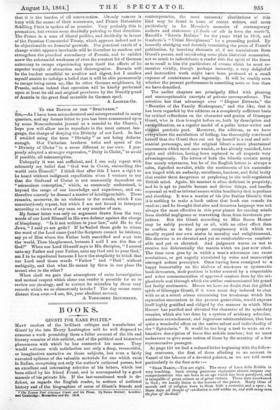TO THE EDITOR OF THE " SPECTATOR."
SIR,—As I have been misunderstood and misrepresented in many quarters, and my former letter to you has been commented upon by some Nonconformist journal as a scandal to the Church, I hope you will allow me to repudiate in the most earnest lan- guage, the charge of denying the Divinity of our Lord. In fact I avoided using the term " Divinity " as not being definite enqugh. Our Unitarian brethren write and speak of the "Divinity of Christ" in a sense different to our own. I pur- posely adopted a stronger expression, " Deity in Christ," to avoid if possible, all misconception.
Unhappily it was not sufficient, and I can only repeat with solemnity my belief that " God was in Christ, reconciling the world unto Himself." I think that after this I have a right to be heard without indignant repudiation when I venture to say that the Godhead of Christ is not necessarily dependent on "miraculous conception," which, as commonly understood, is beyond the range- of our knowledge and experience, and can therefore scarcely be deemed a matter of intelligent faith. These remarks, moreover, do no violence to the creeds, which I can conscientiously repeat, but which I am not bound to interpret according to views of any man or any number of men.
My former letter was only an argument drawn from the very words of our Lord Himself in His own defence against the charge of blasphemy. "Is it not written in your law," said He to the Jews, " I said ye are gods ? het.alled them gods to whom the word of the Lord came (and the Scripture cannot be broken), say ye of Him whom the Father hath sanctified and sent into the world, Thou blasphemest, because I said I am the Son of God?" When our Lord Himself says to His disciples, "I ascend unto my Father and your Father, unto my God and to your God," am I to be repudiated because I have the simplicity to think that our Lord used those words " Father " and " God " without ambiguity, and that what He meant by them in one place He meant also in the other?
When shall we gain that atmosphere of calm investigation and mutual respect which alone can render it possible fur us to review our theology, and to correct its mistakes by those very records which we so clamorously invoke ? The day seems more distant than ever.—I am, Sir, your obedient servant,
A YORKSHIRE INCUMBENT.






























 Previous page
Previous page